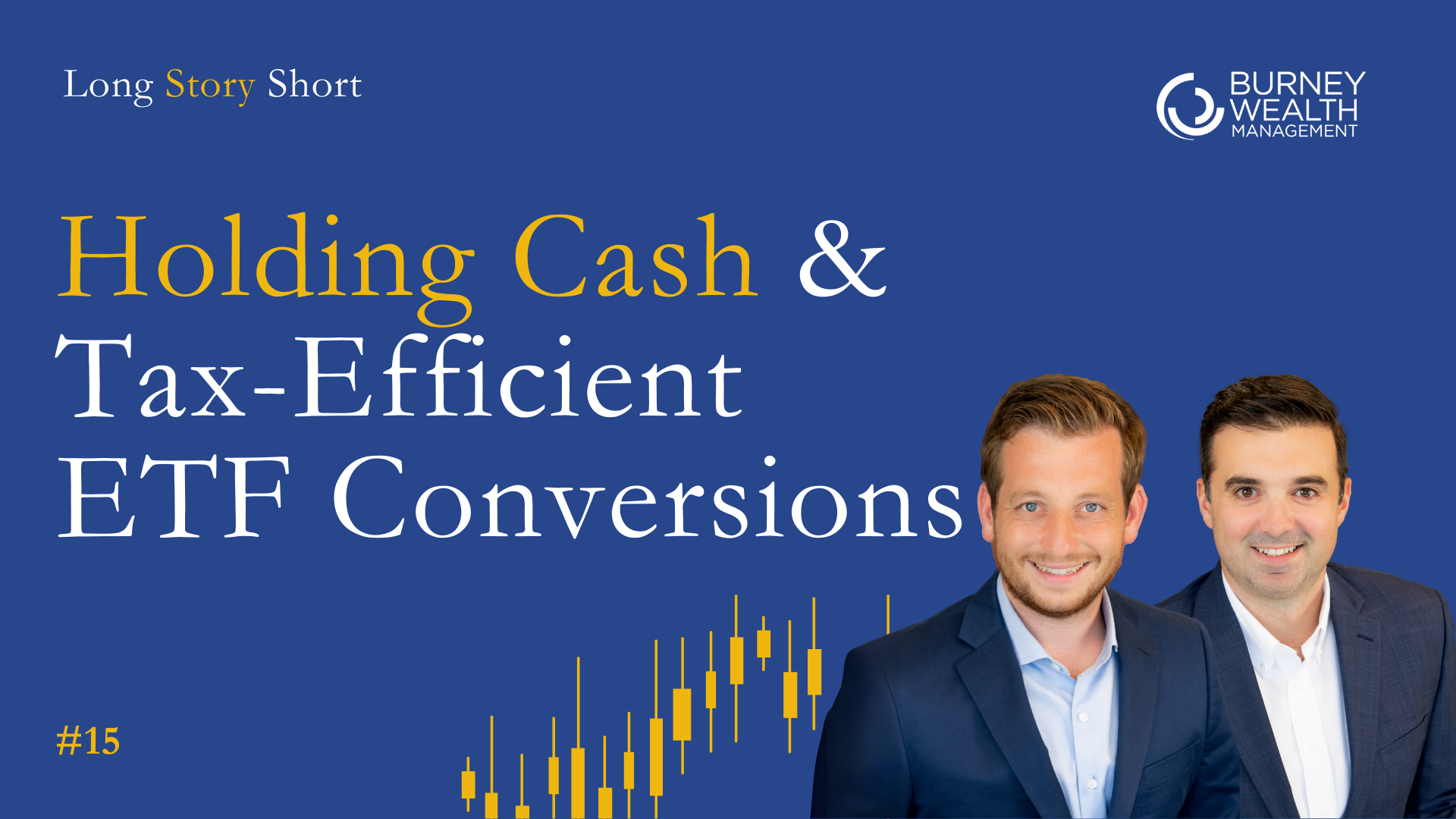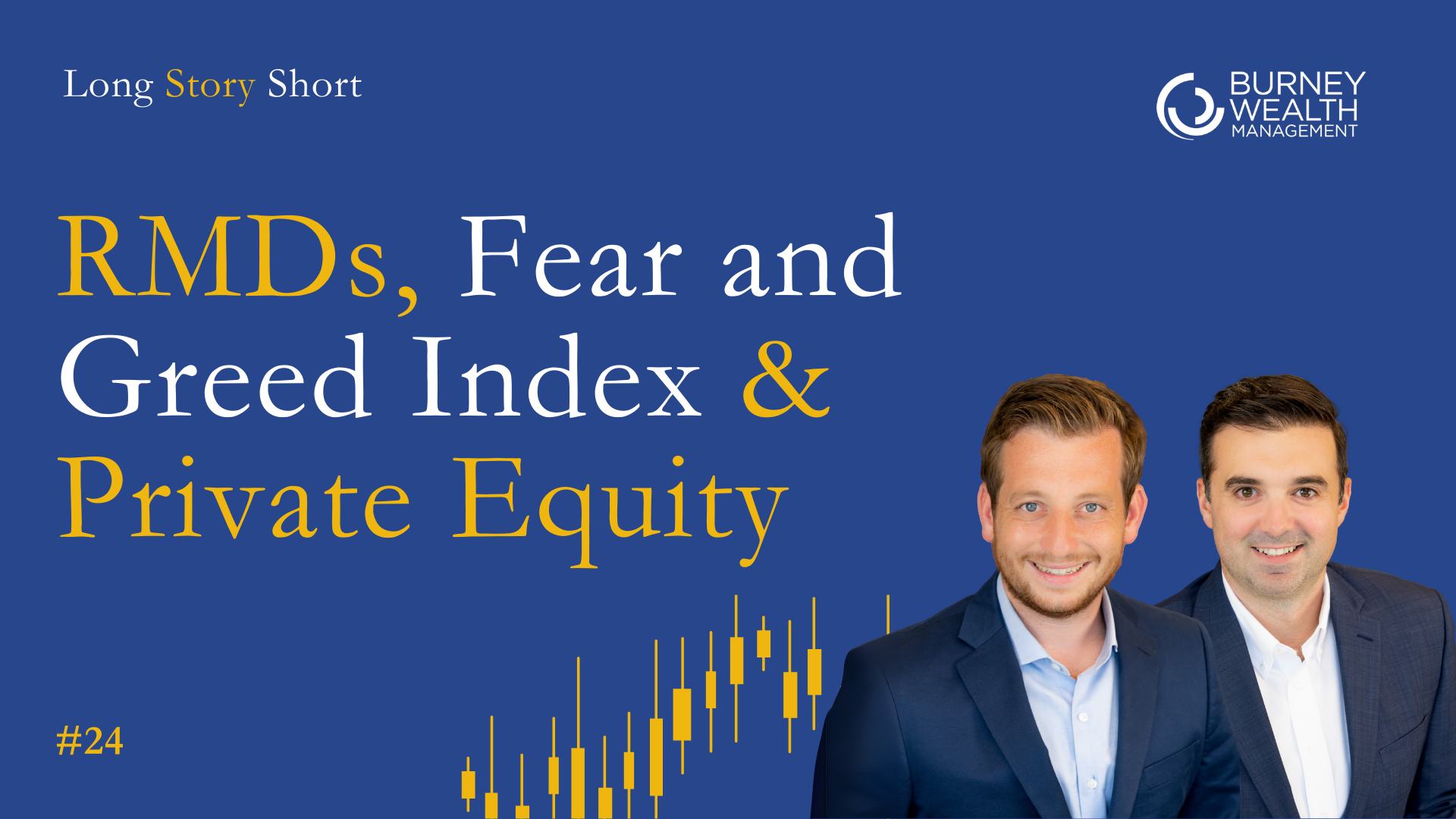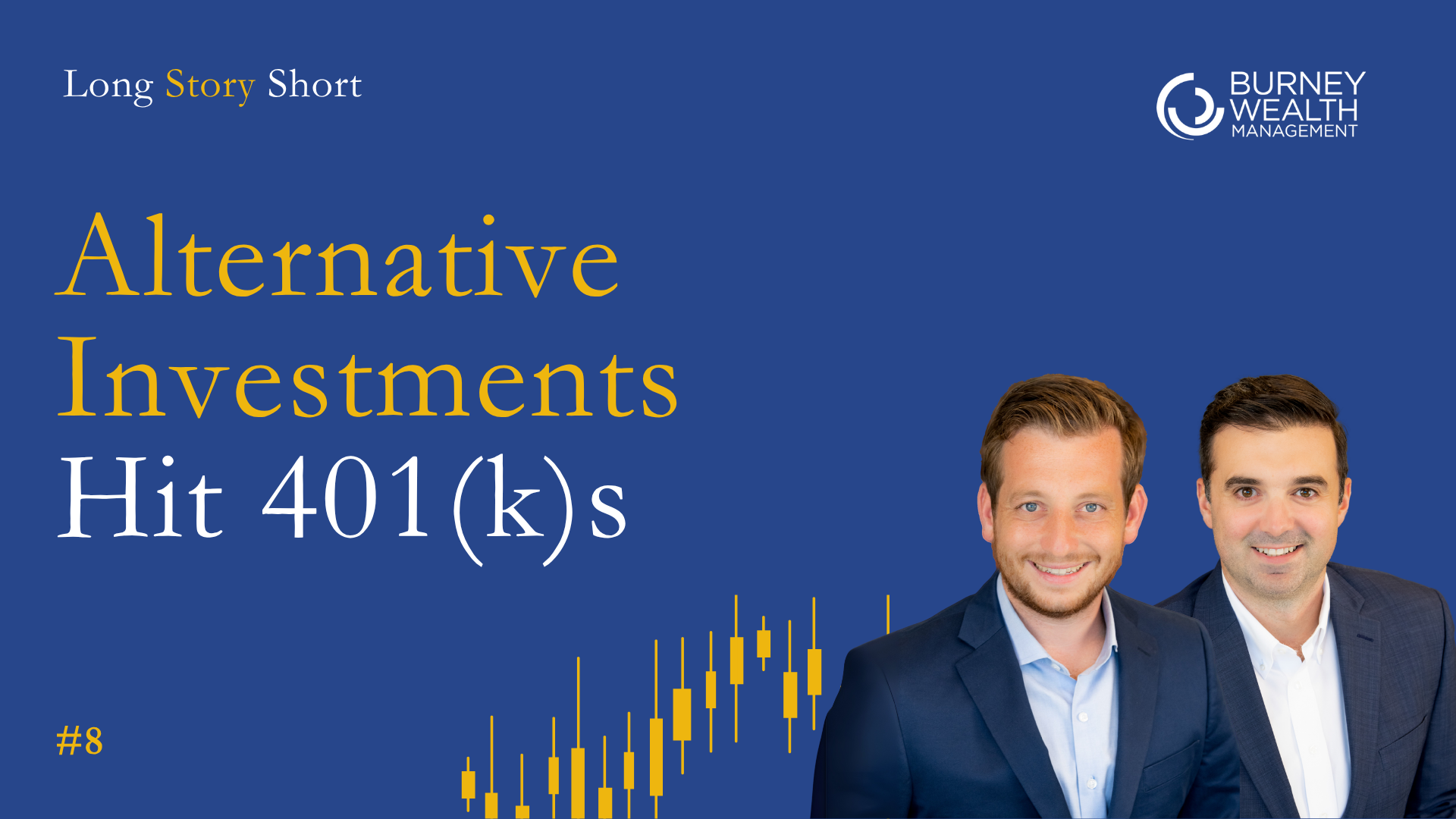Some of the best business lessons come from people who've been in the trenches long enough to see multiple cycles, learn from real mistakes, and understand what actually matters.
Lowell Pratt is one of those people.
As President of Burney Company, Lowell has spent 40 years watching the wealth management industry evolve from paper records to AI-driven analytics. He's seen the firm grow from managing $50,000 accounts to overseeing $3 billion in client assets.
In our first episode of the Long Story Short podcast, Lowell shared insights that can only come from decades of experience. Read on for key takeaways that apply to any advisor looking to build something lasting.
Performance Still Matters (Even When Others Give Up)
When Lowell joined Burney in the 1980s, he discovered the firm had beaten the S&P 500 by a factor of 2-to-1 since inception. That track record wasn't an accident. It came from founder Jack Burney's quantitative process, developed back when a West Point slide rule was state-of-the-art computing.
"A majority of advisory firms today no longer care about trying to create differentiated performance," Lowell notes. "They've given up. It's too hard, it's not important, clients don't care about it - there's a million excuses."
But here's what many firms forget: "Little performance differences compounded over a long time translate to huge differences in ending wealth."
The lesson? While the industry debates whether alpha is dead, the firms still pursuing it have a significant advantage.
Culture Compounds Like Returns
Burney Company's foundation was built by retired military officers, creating what Lowell calls "camaraderie and esprit de corps" that still exists today. His mentors, Ted Rosenberg and Jack Burney, were cut from a different cloth.
Ted's signature response to "How are you?" was always "Truly magnificent.” This earned him the nickname Mr. Mag. Jack was passionate about the investment process, never satisfied that the stone was sufficiently polished.
"They instilled a culture that makes this a very different place," Lowell explains. That culture enabled the firm to attract and retain talent, build lasting client relationships, and maintain its investment edge across multiple decades.
The takeaway: Technical skills get you in the door, but culture determines how far you go.
Ownership Changes Everything
Lowell's advice to younger advisors is direct: "Look for an opportunity to acquire an equity stake in an advisory firm. Try to become an owner, not just a worker bee."
He's lived this philosophy, gradually acquiring client relationships as senior advisors retired and eventually gaining equity in the core company. Each transition came with challenges: market downturns during buyout periods, cash flow pressures, and the weight of increased responsibility.
But ownership also brought clarity: "This is a great business. It's one that you can spend a lifetime growing with. It creates opportunities for many others as well as yourself."
What Clients Actually Want
After four decades of client relationships - some spanning longer than his tenure - Lowell has a clear view of what clients value most.
"Peace of mind, I would say, is at the top of the list. They know this is an important job managing their financial affairs. They know there's potential for big mistakes that could be life-impacting. So having confidence that you've picked somebody who can guide you through the storms is number one."
Performance matters, but is perhaps secondary to trust and competence.
Looking Forward: The AI Challenge
When asked about the biggest risk facing the industry, Lowell's answer was immediate: "AI will either be the driver of productivity gains for a firm like ours, or it'll be the thing that kills a firm like ours."
He sees it as the only threat with "mortal risk" for advisory firms. But Burney has always embraced technology, understanding that change occurs at an accelerating rate.
"I think we've got the right mix to be one of the survivors and beneficiaries of this next big technological revolution."
The Constant That Never Changes
Through all the evolution: from paper records to digital systems, from $50,000 minimums to institutional-level assets, from slide rules to AI, one thing has remained constant at Burney Company.
"Dedication to our clients," Lowell says when asked what value should remain core forever. "Every decision was made from that point of view. That's exactly what I hope the company represents going forward."
In an industry that often gets distracted by the latest trend or technology, the firms that thrive long-term are the ones that never lose sight of the fundamental truth: This business is about people, and people don't change much, even over 40 years.
The rest is just details.



